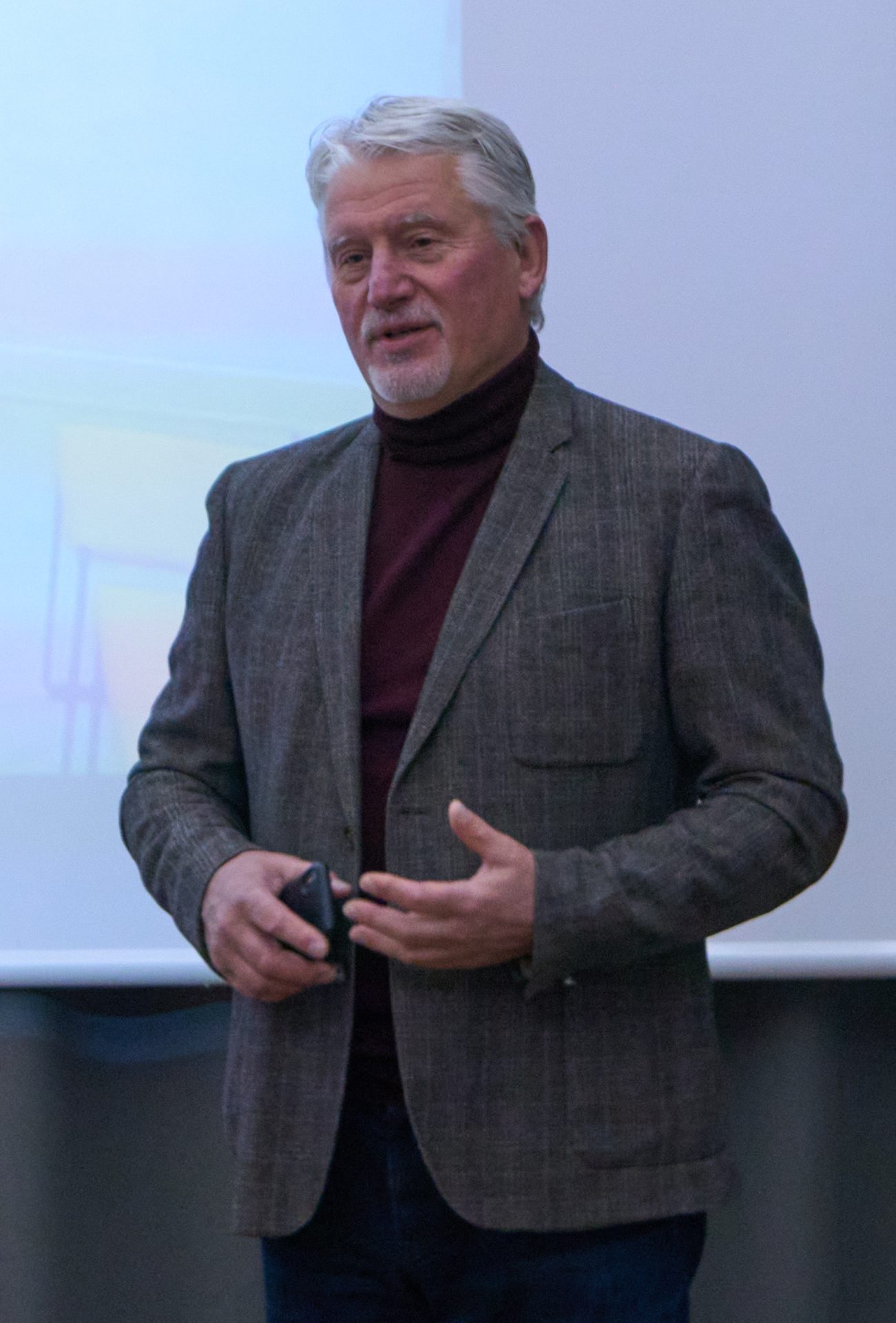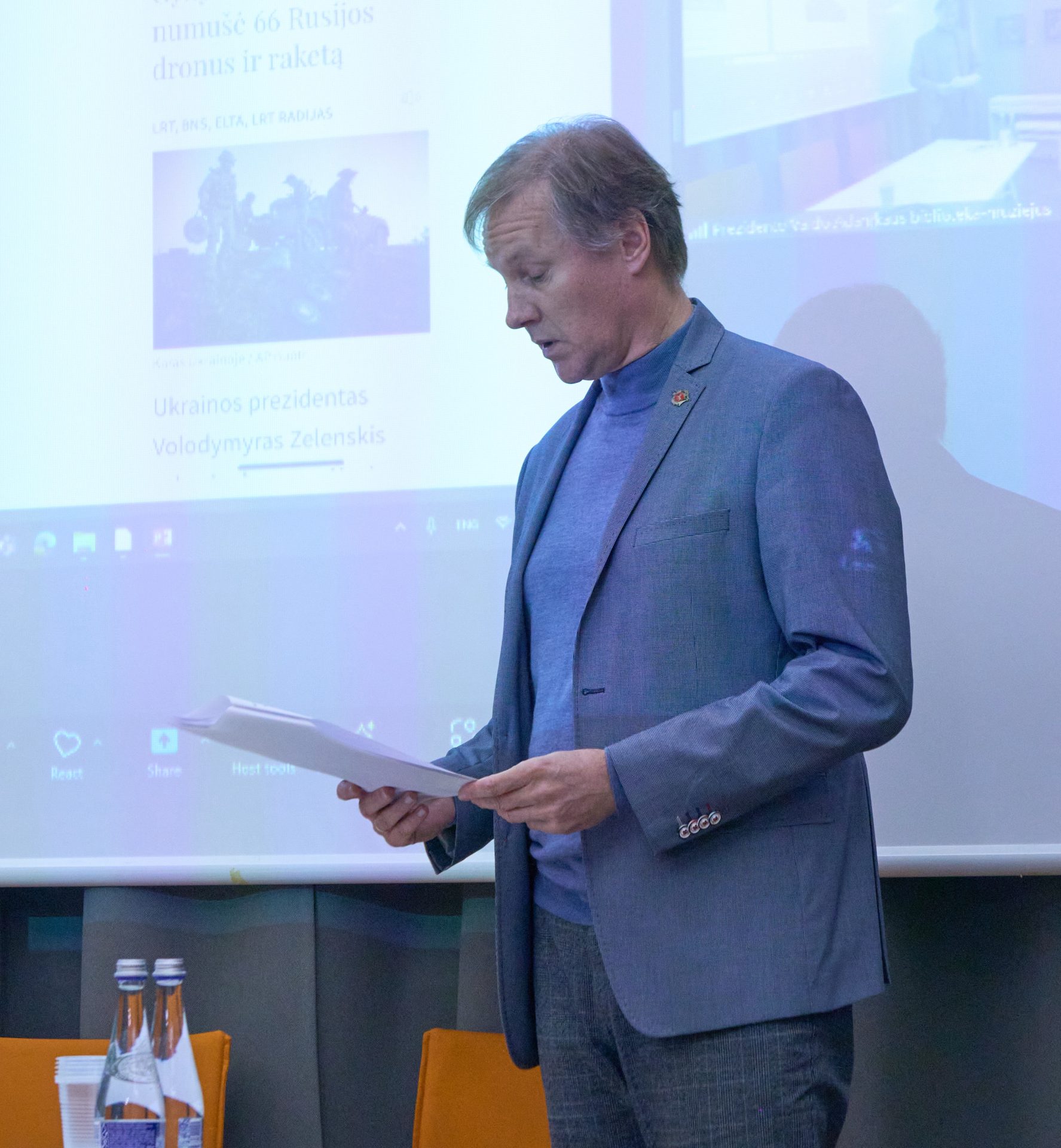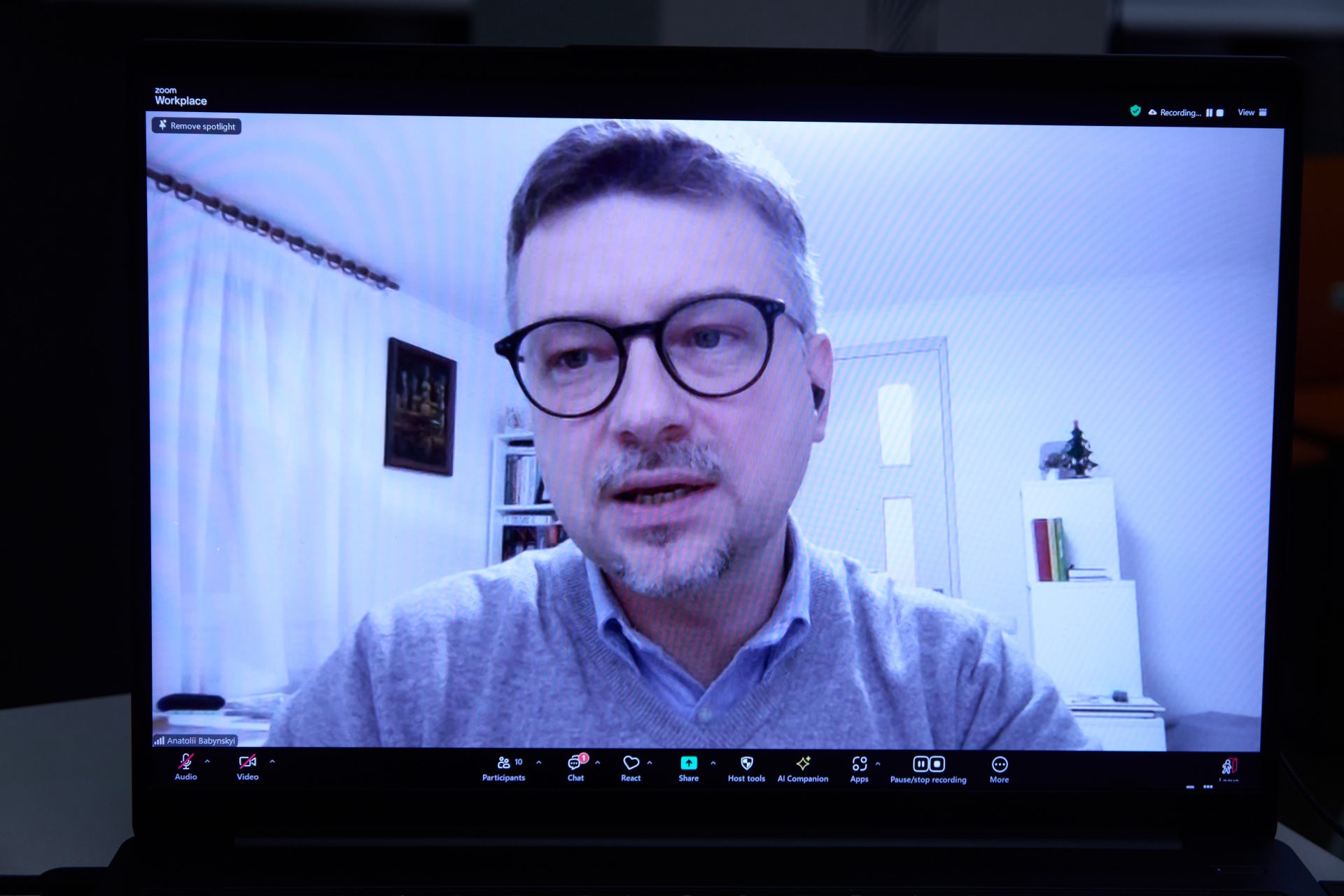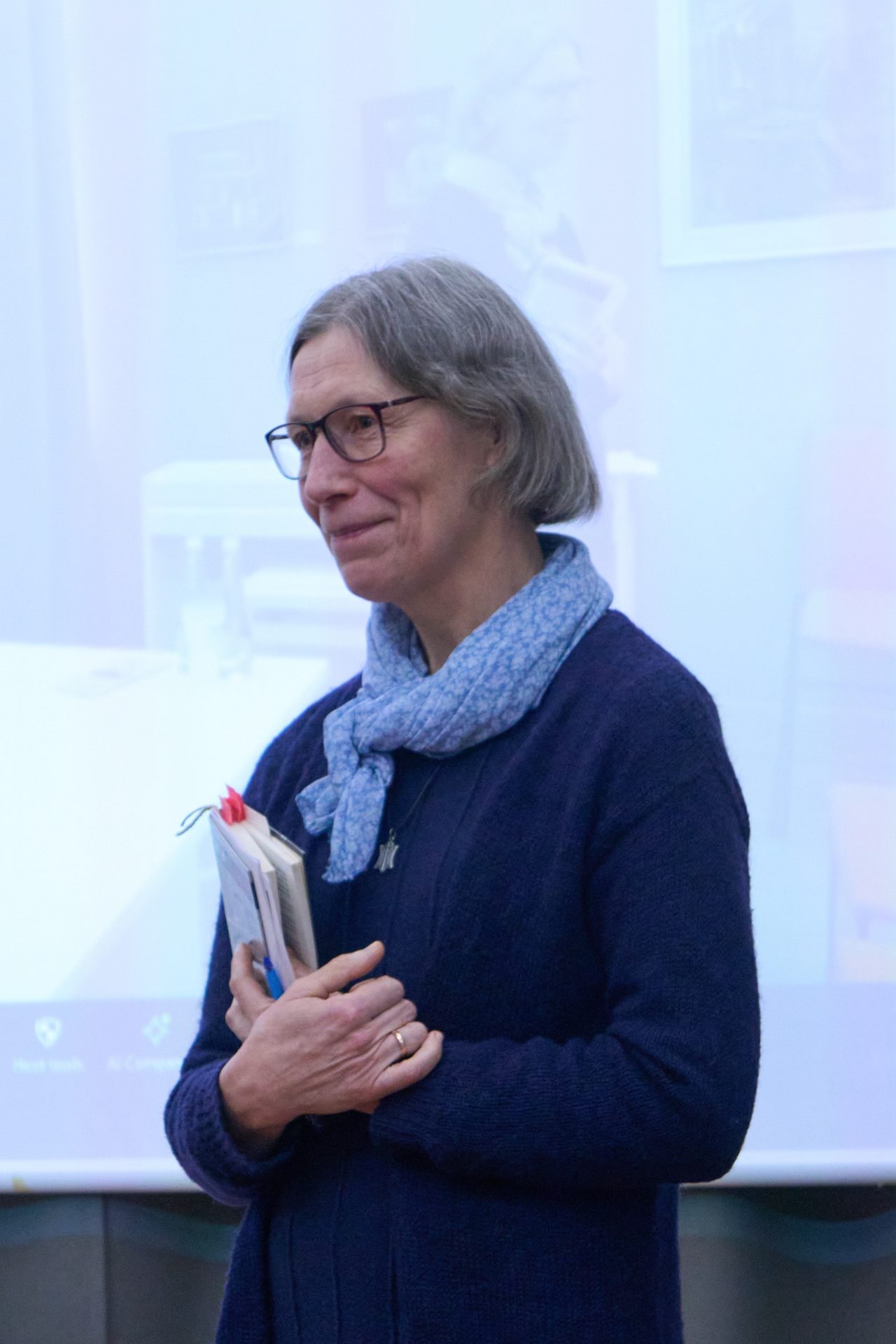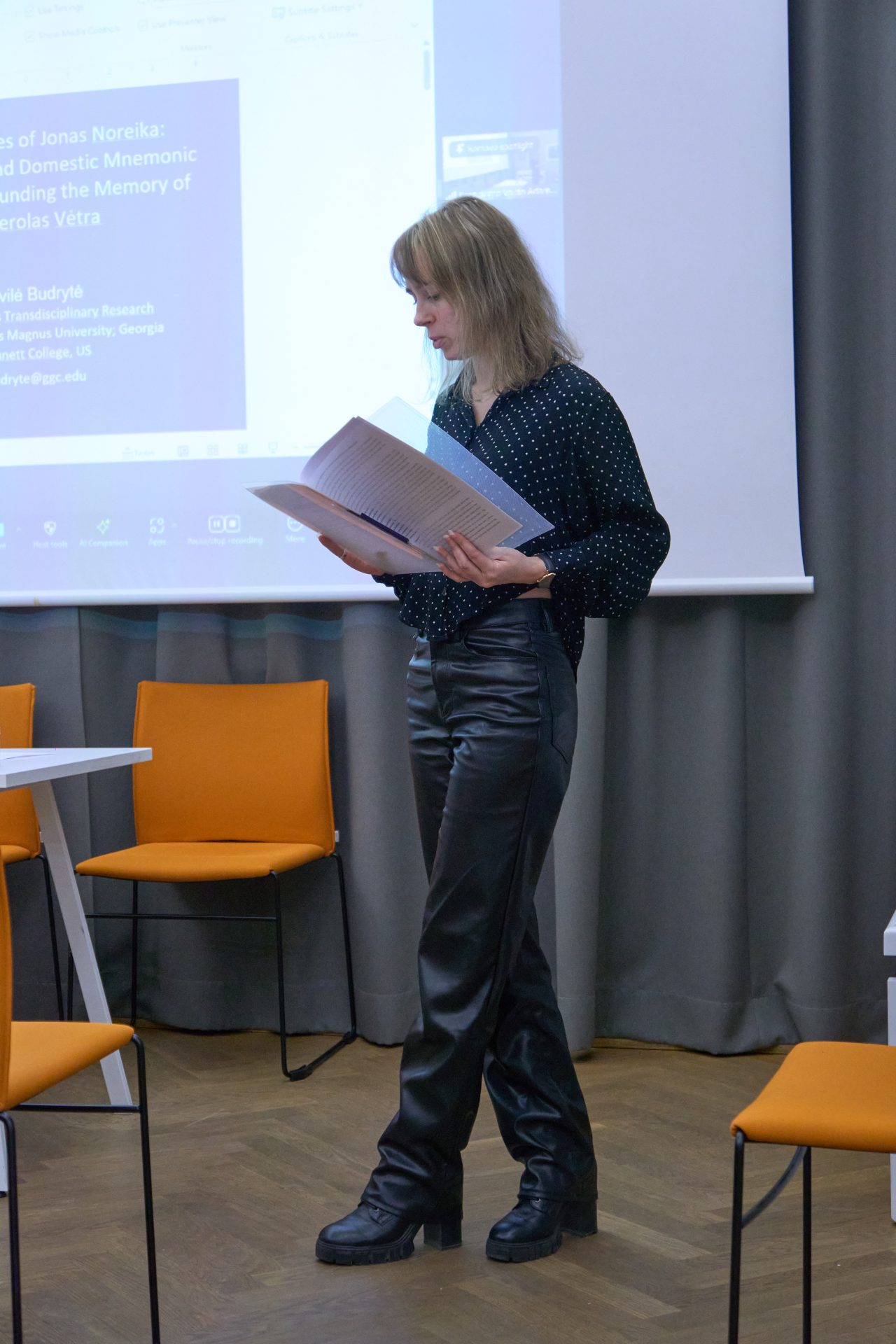International Scientific Conference “The Exilic Fates of the Prisoners of Stutthof”
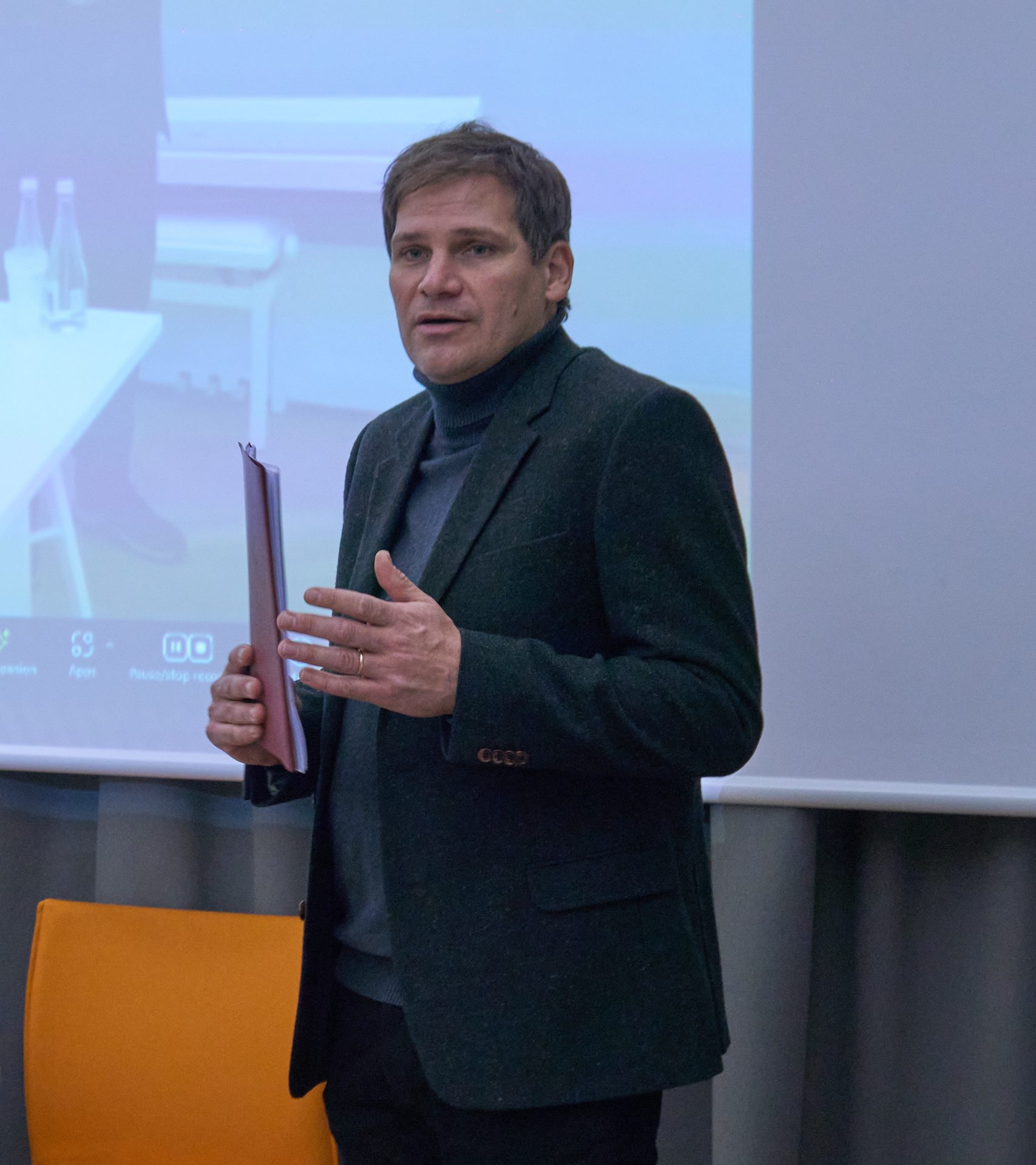
On November 20, 2024, the Lithuanian Emigration Institute at Vytautas Magnus University and The Valdas Adamkus Presidential Library-Museum organized an international interdisciplinary scientific conference titled “The Exilic Fates of the Prisoners of Stutthof”. The conference was dedicated to analyzing the experiences of Lithuanian prisoners who ended up in Nazi concentration camps during World War II. It explored not only the experiences of Stutthof prisoners but also those of inmates in other Nazi camps as a unique phenomenon of individual and collective memory, linking them to diaspora and ethnicity studies. The conference focused on the fates of former prisoners and their relatives in Lithuania and the diaspora, their traumatic experiences, and their memory.
The conference brought together scholars from various fields researching the history of the Lithuanian diaspora, including participants from Vytautas Magnus University, Vilnius University, Ukrainian Catholic University, the Lithuanian National Martynas Mažvydas Library, the Norwegian University of Science and Technology, the University of Notre Dame, the Stutthof Museum in Sztutowo, Temple University, the Institute of Lithuanian Literature and Folklore, and Georgia Gwinnett College.
The first part of the conference was dedicated to the histories of Stutthof prisoners. Reimer Möller presented a report on the evacuation of the Stutthof concentration camp by sea in April–May 1945. Dixie Henri Le Fèvre Simonsen reviewed the final journey of Pranas Meškauskas-Germantas on the barge Wolfgang to Neustadt and the fate of 11 Lithuanians stranded in Copenhagen. Birutė Garbaravičienė spoke about the fate of Vladislovas Telksnys. Ieva Steponavičiūtė-Aleksiejūnienė analyzed the letters of Stutthof prisoners in Iceland. Liudas Mažylis presented publications on the fate of Lithuanian Jews in the Stutthof camp. The second part of the conference focused on experiences in concentration camps. Anatolii Babynskyi examined the experiences of Ukrainian prisoners in concentration camps. Ilona Strumickienė discussed the experiences of Lithuanian political prisoners after their release. Nerijus Pipiras presented on the fates of Lithuanian Catholic Church clergy and monks repressed during the German occupation. Gediminas Karoblis analyzed sermons by Father Jonas Jūraičis on the genocide of nations carried out by the Nazis. The third part of the conference was dedicated to the theme of traumatic memories and their commemoration. Clemens Sedmak analyzed the ethics of memory and recollection. Łukasz Kępski and Ewa Malinowska shared insights on contemporary educational challenges at memory sites, using the example of the Prisoner’s Path workshops held at the Stutthof Museum in Sztutowo. Abby Lewis discussed the Holocaust-themed photography of Julia Pirotte. Gerda Pilipaitytė analyzed the transmission of historical memory in the Spanish play “Where the Forest Thickens”. The fourth part of the conference focused on the history of Nazi concentration camps. Aurelija Mykolaitytė examined forms of silence in Stasys Yla memoir “People and Beasts in the Forest of Gods“. Neringa Markevičienė discussed Balys Sruoga’s memoirs. Dovilė Budrytė gave a presentation on the posthumous life of Jonas Noreika, exploring international and local mnemonic conflicts related to the memory of General Vėtra.
The conference concluded with discussions. The event was organized in a hybrid format—both in-person and online—and the presentations were delivered in Lithuanian and English.
Photographer Andrėja Taranda.

